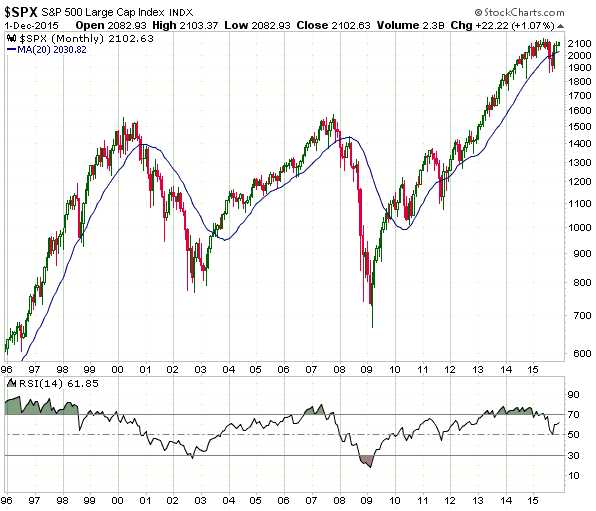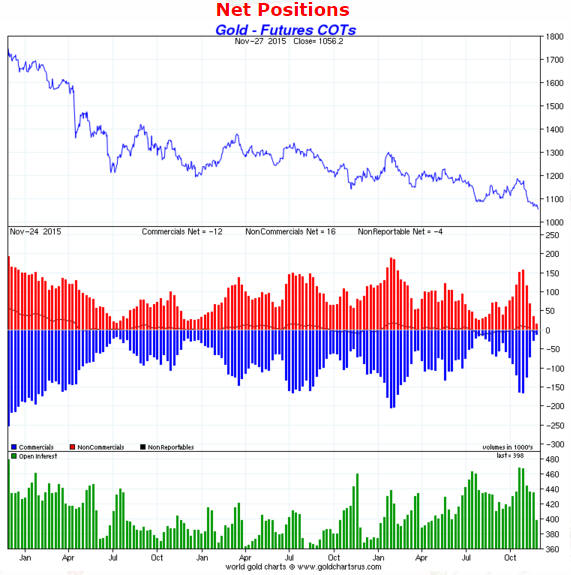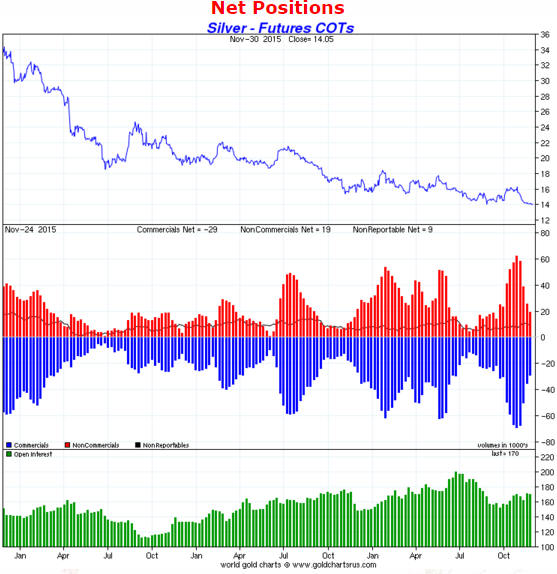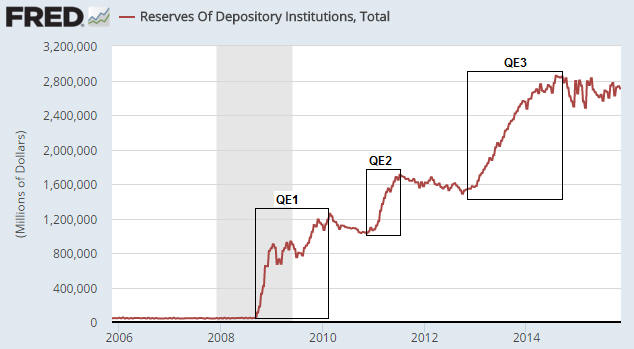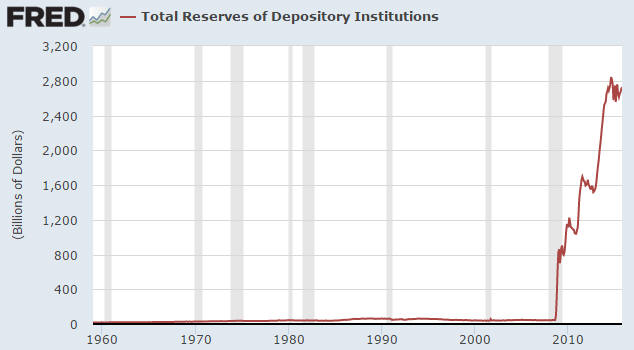I have kept an open mind over the past few months as to whether the July-September decline in US equities was the first leg of a new cyclical bear market or a correction within an on-going cyclical bull market. There were hints that it was the former, but there was nothing definitive in the indicators I follow and the price action was consistent with either possibility. The jury is still out, although there has been a probability shift over the past couple of weeks. Before I discuss this shift I’ll do a quick recap for the benefit of blog readers who aren’t TSI subscribers.
During the first half of July this year I thought that there was almost no chance of the US stock market experiencing a bona fide crash over the ensuing few months, but — for reasons outlined in TSI commentaries at the time — I thought there was a good chance of the S&P500 Index (SPX) falling by 10%-20% from a July peak to a bottom by mid-October and that a put-option position was a reasonable way to trade this likely outcome. Then, when there was a discontinuity at the start of the US trading session on Monday 24th August with prices gapping sharply lower across the board, I sent an email to TSI subscribers saying that all bearish positions should be exited immediately. My view was that the 24th August mini-panic would be followed by a multi-week rebound and then a decline to test the low by mid-October, but regardless of what the future held in store the 24th August price action created a very obvious profit-taking opportunity for anyone who was betting on lower prices.
Subsequent price action could aptly be described as noncommittal. There was a successful test of the 24th August low in late-September followed by a strong rebound to a high in early-November, none of which was surprising. Also, this price action didn’t provide any important new clues, because I considered a successful test of the August low followed by a rebound to at least the 200-day MA to be likely regardless of whether we were dealing with a bull-market correction or the early stages of a new bear market.
I’ll now deal with the probability shift mentioned in the first paragraph.
Although I was keeping an open mind regarding the nature of the July-September downturn, if someone had held a gun to my head a few weeks ago and forced me to pick a side I would have chosen the ‘new bear market’ scenario. That is no longer the case.
The jury is still out and for practical investing/speculating purposes there is no need to pick a side, but the probabilities have recently shifted in favour of the ‘bull market correction’ scenario. Displayed below is a chart that illustrates one of the reasons for this probability shift. It is a monthly chart of the S&P500 Index (SPX) with a 20-month moving-average (MA).
This chart shows that once a bear market got underway in 2000 and 2007 and the SPX had achieved a monthly close below its 20-month MA, it did not achieve a monthly close above this MA until the bear market was over. However, in 2011 and again this year, a monthly close below the 20-month MA was quickly reversed.
If a cyclical bear market was in progress then the SPX should have weakened enough in November to give another monthly close below its 20-month MA, but it didn’t. Instead, it managed a second consecutive monthly close above this MA. This is a meaningful divergence from the price action in the early stages of the preceding two cyclical bear markets and is more consistent with the bull-market correction scenario.
There is other evidence to support the ‘bull market correction’ scenario, but, as I said, the evidence is not yet conclusive. In fact, in a TSI commentary scheduled for tomorrow I’m going to show two important indicators that support the ‘equity bear market’ scenario. Moreover, the bull market is ‘long in the tooth’, valuations are high and earnings growth (on a market-wide basis) is non-existent, so even if the long-term bullish trend is still in progress there’s a high risk that it will end sometime next year.
 Print This Post
Print This Post

